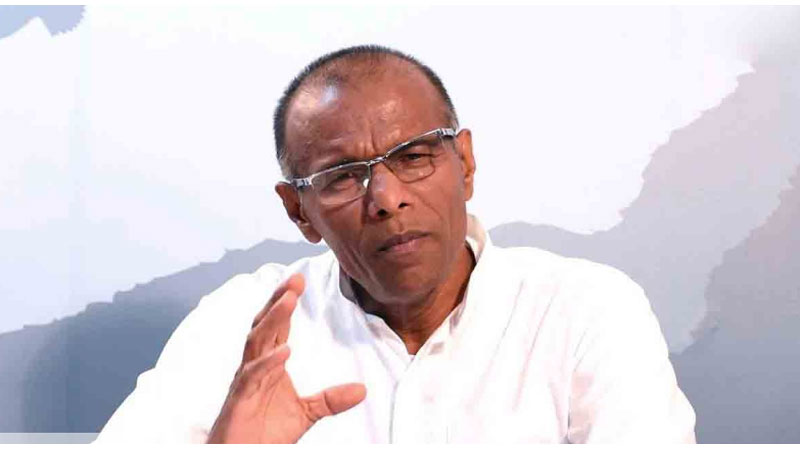
The Supreme Court yesterday issued an order debarring Attorney-at-Law Nagananda Kodituwakku from practicing as a lawyer for a period of three years.
This disbarment will be effective from yesterday until March 18, 2022.
The Supreme Court three-judge-bench comprising Chief Justice Nalin Perera, Justice Sisira de Abrew and Justice Prasanna Jayawardena made this order pursuant to a complaint made by Supreme Court Justice Vijith K. Malalgoda concerning improper, insulting, intolerable, unbecoming and contemptuous behaviour on the Court of Appeal by respondent Nagananda Kodituwakku.
The Supreme Court found respondent’s guilty following an inquiry and ruled that Nagananda Kodituwakku has breached rules Number 60 and 61 of the Supreme Court.
However, on a previous occasion, the respondent had expressed his willingness to tender his apology to Justice Malalgoda and expressed regret to the utterances he made on May 21, 2015 at the Court of Appeal.
Solicitor General Dappula de Livera PC appearing for the Attorney General maintained that tendering apology following the conclusion of a trial is not appropriate and he should have done it at the beginning.
Two petitioners by name of A.H.M.C.M. Nazeer and M.M.R. Fareed had filed a case in the Court of Appeal against the Director General of Customs and seeking Writ of Certiorari and Mandamus.
When the matter was taken up for argument on May 21, 2015 before then Court of Appeal (President) Justice Vijith K. Malalgoda and Justice H.C.J. Madawala, the respondent had submitted to court that he had filed a motion in the Court of Appeal registry requesting a nomination of different bench on the basis that the said application referred to a custom inquiry involving a large sum of money and that he had no trust in the particular bench before it was listed for argument.
During the inquiry, Justice Malalgoda and Senior Deputy Solicitor General Milinda Gunatilleke gave evidence against the respondent.
The complaint stated that by the contemptuous submissions the respondent had made without any basis whatsoever brought the court into ridicule and caused the erosion of public trust and confidence reposed in the judicial system and overall damaging effect of his submissions could be considered an instance of Contempt of Court which makes his ex-facie liable to be dealt with according to law.
It is further alleged that the conduct of the respondent was in the manner unworthy of an Attorney-at-Law and have thus committed a breach of Rule number 60 and 61 of Supreme Court.
The proceedings against the respondent suspension from the office of Attorney-at-Law was taken under Section 42(2) of the Judicature Act No.2 of 1978 read with Supreme Court Rule of 1978 made under Article 136 of the Constitution.
Solicitor General Dappula de Livera PC with Deputy Solicitor General Viveka Siriwardena appeared for the Attorney General.
*************************
SC Disbars Nagananda Kodituwakku (16:39)
The Supreme Court today issued an order disbarring Attorney-at-law Nagananda Kodituwakku from practicing as a lawyer for a period of three years. This disbarment will be effective from toay until March 18, 2022.
The Supreme Court three-judge-bench comprising Chief Justice Nalin Perera, Justice Sisira de Abrew and Justice Prasanna Jayawardena made this order pursuant to a complaint made by Supreme Court Justice Vijith K. Malalgoda concerning improper, insulting, intolerable, unbecoming and contemptuous behavior on Court of Appeal by respondent Nagananda Kodituwakku. The Supreme Court found respondent’s guilty following an inquiry and ruled that Nagananda Kodituwakku has breached rules number 60 and 61 of Supreme Court.
However, at a previous occasion, the respondent had expressed his willingness to tender his apology to Justice Malalgoda and expressed regret to the utterances he made on May 21, 2015 at the Court of Appeal. Solicitor General Dappula de Livera PC appearing for the Attorney General maintained that tendering apology following the conclusion of a trial is not appropriate and he should have done it at the beginning.


